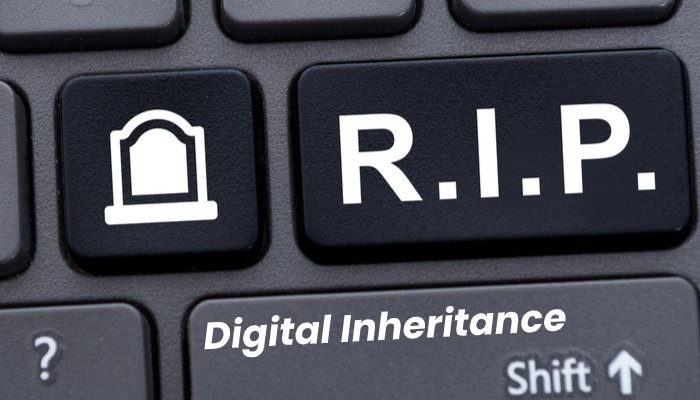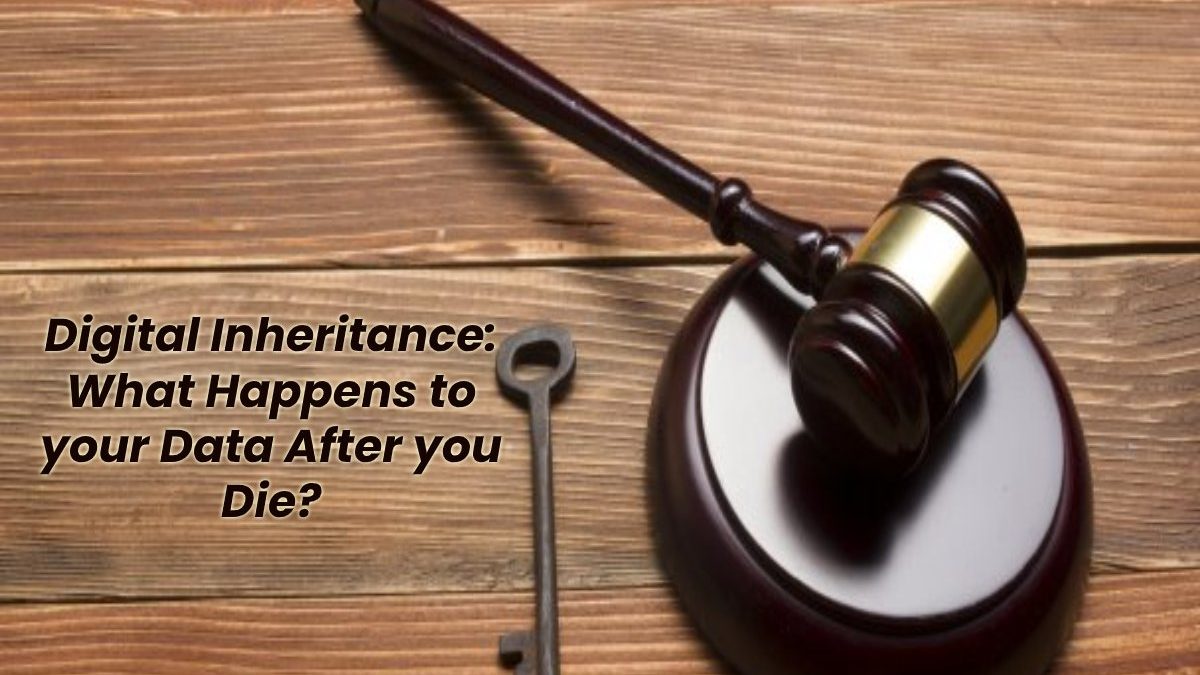E-mail, online shops, social media – in our lives, leave behind vast amounts of data. Few people care what happens to it after they die. This article will determine why you should take care of your digital inheritance estate and what you need to consider.
Table of Contents
Inheritance Law also Applies to Digital Inheritance
According to a ruling by the Federal Court of Justice (BGH), the digital estate is to be treated like the inheritance of objects: After your death, all your rights and obligations towards online services automatically pass to your heirs, who then have all of your personal data – in E-Mail services as in social networks.
The personal digital communication of a deceased is entirely accessible to heirs. If you want to decide what to do with your data after your death, you have to look after your digital estate while still alive.

Managing your Digital Estate: step by step
The consumer advice center has collected numerous tips on its website that should help you to regulate the most important points relating to your digital estate:
Create an overview of all accounts, including user names and passwords. It is best to save the list on an encrypted or password-protected USB stick and keep it in a safe place, for example, in a safe or a safe deposit box.
A person you trust should take care of all tasks related to your digital estate. For this purpose, of course, a power of attorney is required, which must be valid “beyond death.” Your trusted person should at least have a complete list of all your user accounts. It is best to determine in detail what will happen to each account after your death. Besides, determine how to proceed with your end devices (computer, smartphone, tablet) and the data stored on them.
Hand over a power of attorney to your confidant. Also, inform your family members that you have managed your digital estate this way. Let your trusted person know where they can find the access data for your accounts.
Always keep the list of your accounts up to date.
A Testament for More Legal Certainty
The digital estate can also be regulated in a will, containing all access data for online services. You can define that only specific people can see your data.
The will must be handwritten, precisely formulated, and signed. Because self-formulated wills can quickly become ineffective, the Federal Government recommends engaging a specialist lawyer for inheritance law or a notary.
Be careful with Estate Administration for Money
According to the consumer advice center, some companies take care of your digital estate administration for money. However, it is difficult to assess the security of these providers. Anyone considering hiring a commercial estate administrator should find out more about the scope of services and the costs.
The consumer advice center also warns: “Under no circumstances should you trust a company with passwords! You should also not hand over your computers, smartphones, or tablets to commercial providers who search the devices for the digital estate. Too much personal data may be leaked to unauthorized persons. ”
Digital Heritage on Social Networks
Facebook and Google offer the possibility to determine contacts who can access your content after your death. The consumer advice center has described exactly how this works in two videos.
Besides, Facebook can put accounts in the so-called “memorial state.” There is also the option of either naming an estate contact who should take care of the memorial account or stipulate that it be permanently deleted.
Searches Related to Digital Inheritance
- [digital inheritance laws]
- [digital assets]
- [digital death]
- [value of digital assets]
- [digital legacy]
- [types of digital assets]
- [assets for digital graphics]
- [managing digital assets]

